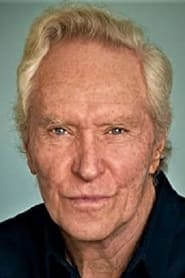
Since "the" is one of the most frequently used words in English, at various times short abbreviations for it have been found: Sudan (but the Republic of the Sudan) and South Sudan (but the Republic of South Sudan) are written nowadays without the article. Ukraine is occasionally referred to as the Ukraine, a usage that was common during the 20th Century, possibly originating with Ukrainian immigrant scholars not fluent in English referring to the country as so. This usage is in decline, The Gambia remains recommended whereas use of the Argentine for Argentina is considered old-fashioned.
derivations from mountain ranges, rivers, deserts, etc., are sometimes used with an article, even for singular, ( the Lebanon, the Sudan, the Yukon, the Congo). Singular derivations from "island" or "land" that hold administrative rights – Greenland, England, Christmas Island and Norfolk Island – do not take a "the" definite article. countries in a plural noun: the Netherlands, the Falkland Islands, the Faroe Islands, the Cayman Islands, the Philippines, the Comoros, the Maldives, the Seychelles, Saint Vincent and the Grenadines, and The Bahamas. #The passion network movie full
derivations from collective common nouns such as "kingdom", "republic", "union", etc.: the Central African Republic, the Dominican Republic, the United States, the United Kingdom, the Soviet Union, the United Arab Emirates, including most country full names: the Czech Republic (but Czechia), the Russian Federation (but Russia), the Principality of Monaco (but Monaco), the State of Israel (but Israel) and the Commonwealth of Australia (but Australia). generally described singular names, the North Island (New Zealand) or the West Country (England), take an article.Ĭountries and territorial regions are notably mixed, most exclude "the" but there are some that adhere to secondary rules:. Some place names include an article, such as the Bronx, The Oaks, The Rock, The Birches, The Harrow, The Rower, The Swan, The Valley, The Farrington, The Quarter, The Plains, The Dalles, The Forks, The Villages, The Woodlands, The Pas, the Vatican, The Hyde, the West End, the East End, The Hague, or the City of London (but London). beginning with a common noun followed by of may take the article, as in the Isle of Wight or the Isle of Portland (compare Christmas Island), same applies to names of institutions: Cambridge University, but the University of Cambridge. continents, individual islands, administrative units and settlements mostly do not take a "the" article ( Europe, Jura, Austria (but the Republic of Austria), Scandinavia, Yorkshire (but the County of York), Madrid).  notable natural landmarks – rivers, seas, mountain ranges, deserts, island groups ( archipelagoes) and so on – are generally used with a "the" definite article ( the Rhine, the North Sea, the Alps, the Sahara, the Hebrides). Geographic usageĪn area in which the use or non-use of the is sometimes problematic is with geographic names: In Middle English, these had all merged into þe, the ancestor of the Modern English word the. Old English had a definite article se (in the masculine gender), sēo (feminine), and þæt (neuter).
notable natural landmarks – rivers, seas, mountain ranges, deserts, island groups ( archipelagoes) and so on – are generally used with a "the" definite article ( the Rhine, the North Sea, the Alps, the Sahara, the Hebrides). Geographic usageĪn area in which the use or non-use of the is sometimes problematic is with geographic names: In Middle English, these had all merged into þe, the ancestor of the Modern English word the. Old English had a definite article se (in the masculine gender), sēo (feminine), and þæt (neuter). 
The and that are common developments from the same Old English system.


The, as in phrases like "the more the better", has a distinct origin and etymology and by chance has evolved to be identical to the definite article. Definite article principles in English are described under " Use of articles".








 0 kommentar(er)
0 kommentar(er)
